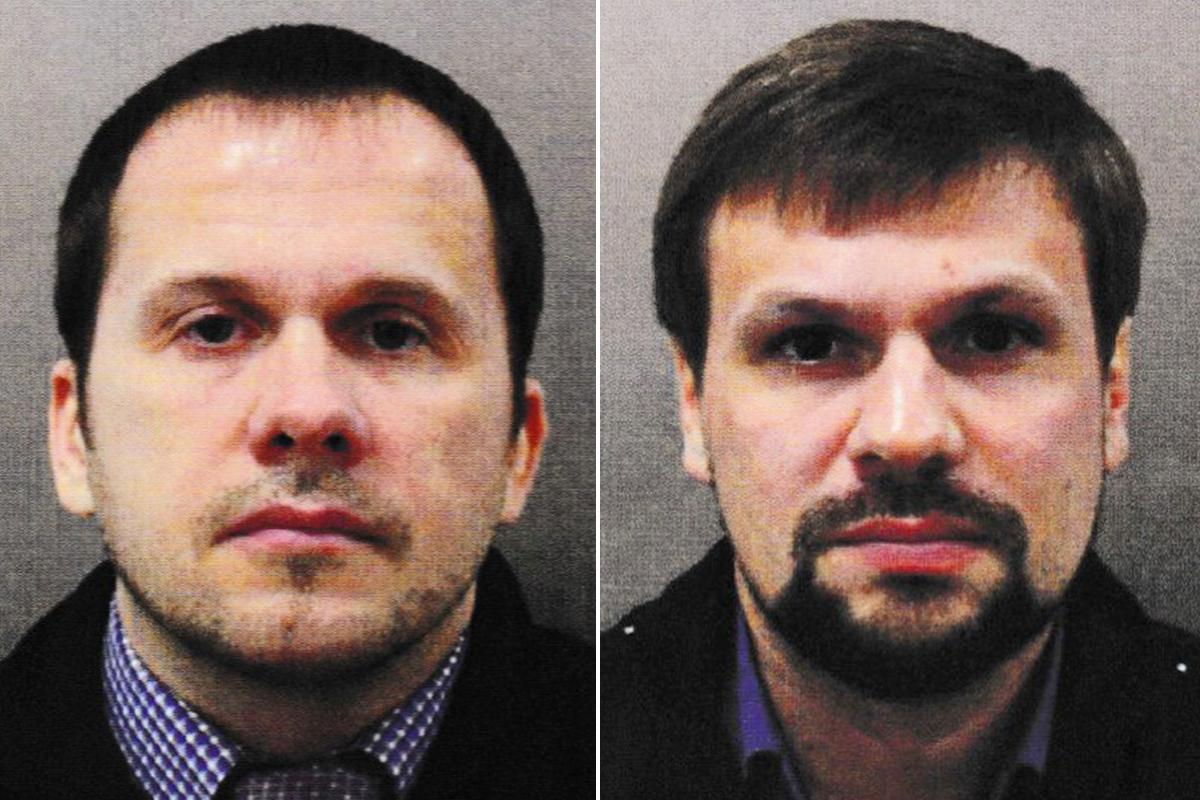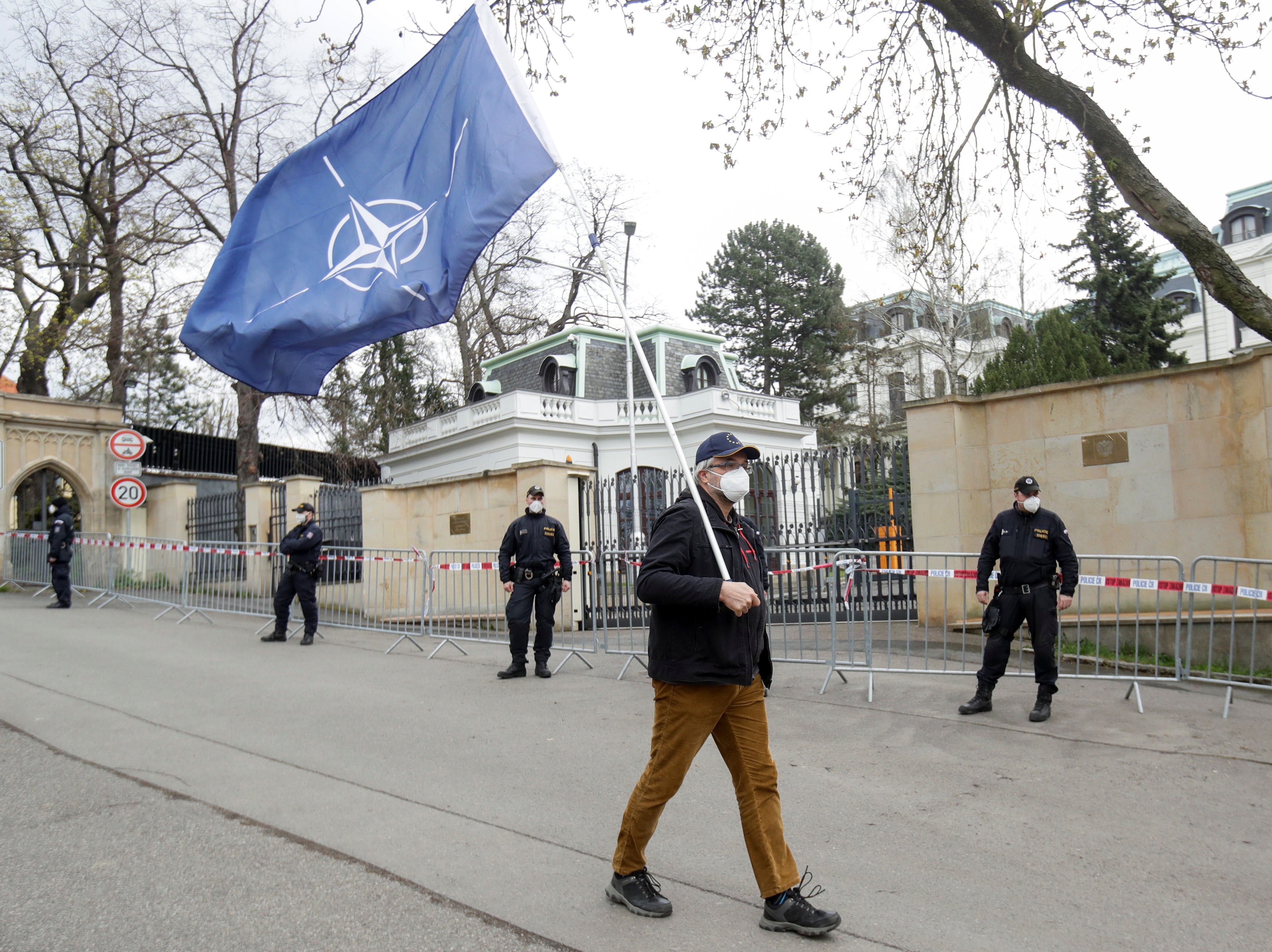UK ‘stands with’ Czech Republic over hunt for pair using names of Skripal poisoning suspects
Pair sought in connection with 2014 ammunition depot explosion that left two dead

Your support helps us to tell the story
From reproductive rights to climate change to Big Tech, The Independent is on the ground when the story is developing. Whether it's investigating the financials of Elon Musk's pro-Trump PAC or producing our latest documentary, 'The A Word', which shines a light on the American women fighting for reproductive rights, we know how important it is to parse out the facts from the messaging.
At such a critical moment in US history, we need reporters on the ground. Your donation allows us to keep sending journalists to speak to both sides of the story.
The Independent is trusted by Americans across the entire political spectrum. And unlike many other quality news outlets, we choose not to lock Americans out of our reporting and analysis with paywalls. We believe quality journalism should be available to everyone, paid for by those who can afford it.
Your support makes all the difference.Britain says it “stands with” the Czech Republic as it hunts for two men suspected of a 2014 explosion who could also be connected to the 2018 Novichok poisonings in Salisbury.
Czech police have released photos of two foreign citizens, who they said carried Russian passports matching the names of Alexander Petrov, 41, and Ruslan Boshirov, 43.
The men are already wanted in the UK over the poisonings of former Russian spy Sergei Skripal and his daughter Yulia, although both they and Moscow deny any involvement.
Now investigators say the men may also have been involved in an explosion on 16 October 2014 at a depot in the town of Vrbetice where 50 metric tons of ammunition was stored. The incident claimed the lives of two people.
Another explosion of 13 tonnes of ammunition occurred in the same depot on 3 December of that same year.
Czech police said the men had visited the country between 11 and 16 October 2014, and that they also visited the capital of Prague and another northeastern Czech region.
They said the suspects were also using passports issued by Moldova for Nicolai Popa and a passport issued by Tajikistan for Ruslan Tabarov.

Dominic Raab said the UK government gave its full backing to the Czech Republic as the country announced it was expelling 18 Russian diplomats who it had identified as spies during the investigation into the depot explosion.
The foreign secretary said: “The UK stands in full support of our Czech allies, who have exposed the lengths that the Russian intelligence services will go to in their attempts to conduct dangerous and malign operations in Europe.
“We are as determined and committed as ever to bring those responsible for the attack in Salisbury to justice, and commend the actions of the Czech authorities to do the same.
“Russia must desist from these actions, which violate the most basic international norms.”
The Czech Republic said on Sunday it had informed Nato and European Union allies about suspected Russian involvement in the 2014 depot explosion.
The EU’s executive commission later confirmed the matter would be addressed during a virtual meeting of EU foreign ministers on Monday.
Mr Skripal, a former Russian spy turned double agent for MI6, and his 33-year-old daughter Yulia, survived the Novichok attack in Salisbury on 4 March 2018 but the incident later claimed the life of Dawn Sturgess, after she came into contact with a perfume bottle believed to have been used in the attack before being discarded.
The suspects were seen on CCTV footage in Salisbury the day before the attack.
Moscow has repeatedly denied any involvement, with president Vladimir Putin claiming the two suspects were civilians.
However, they are wanted in the UK, where the Crown Prosecution Service authorised charges against them in connection with the attempted killings.
Meanwhile, the government is reportedly set to introduce new laws to prosecute and deport foreign spies amid concerns over the actions of states such as Russia and China.
Boris Johnson will use the Queen’s Speech next month to announce a bill, which will make it a requirement for individuals working on behalf of foreign governments to register their presence in the UK, according to The Times.
The newspaper said the bill will also update the Officials Secrets Act to target those who try to sabotage the UK from abroad by carrying out activities such as cyber hacking.
Additional reporting by agencies